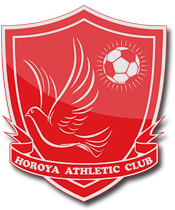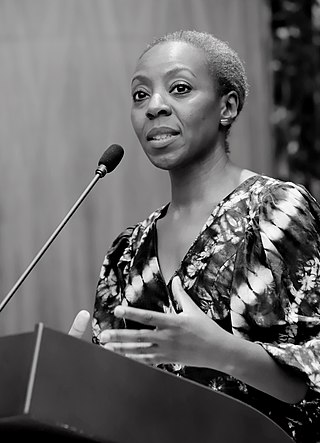Related Research Articles

Politics of Guinea takes place in a framework of a presidential representative democratic republic, whereby the President of Guinea is both head of state and head of government of Guinea. Executive power is exercised by the government. Legislative power is vested in both the government and the National Assembly.

The Mandinka or Malinke are a West African ethnic group primarily found in southern Mali, The Gambia, southern Senegal and eastern Guinea. Numbering about 11 million, they are the largest subgroup of the Mandé peoples and one of the largest ethnolinguistic groups in Africa. They speak the Manding languages in the Mande language family, which are a lingua franca in much of West Africa. Virtually all of Mandinka people are adherent to Islam, mostly based on the Maliki jurisprudence. They are predominantly subsistence farmers and live in rural villages. Their largest urban center is Bamako, the capital of Mali.

Boubacar Diallo Telli was a Guinean diplomat and politician. He helped found the Organisation of African Unity (OAU) and was the second secretary-general of the OAU between 1964 and 1972. After serving as Minister of Justice in Guinea for four years he was executed by starvation by the regime of Ahmed Sékou Touré at Camp Boiro in 1977.

The Mano River Union (MRU) is an international association initially established between Liberia and Sierra Leone by the 3 October 1973 Mano River Declaration. It is named for the Mano River which begins in the Guinea highlands and forms a border between Liberia and Sierra Leone. On 25 October 1980, Guinea joined the union.

Alpha Condé is a Guinean politician who served as the fourth president of Guinea from 2010 to 2021. He spent decades in opposition to a succession of regimes in Guinea, unsuccessfully running against then-President Lansana Conté in the 1993 and 1998 presidential elections and leading the Rally of the Guinean People (RPG), an opposition party.

Horoya Athletic Club, also known as Horoya Conakry or H.A.C., is a Guinean professional football club based in Conakry, Guinea. The club plays in the Ligue 1 Pro, the top tier in the Guinean football league system. It was founded in 1975.
Camp Boiro or Camp Mamadou Boiro (1960–1984) is a defunct Guinean concentration camp in the city of Conakry. During the regime of President Ahmed Sékou Touré, thousands of political opponents were imprisoned at the camp. It has been estimated that almost 5,000 people were executed or died from torture or starvation at the camp. According to other estimates, the number of victims was ten times higher: 50,000.

On 23 December 2008, a coup d'état occurred in Guinea, shortly after the death of long-time president Lansana Conté. A junta called the National Council for Democracy and Development, headed by Captain Moussa Dadis Camara, seized power and announced that it planned to rule the country for two years prior to a new presidential election. Camara did indeed step down after Alpha Condé was elected in the 2010 election.

The National Council for Democracy and Development was the ruling junta of Guinea from 2008 to 2010.

Presidential elections were held in Guinea in 2010. They were held under the two-round system, with the first round taking place on 27 June 2010 and the second round on 7 November, after an initial date of 18 July and several other postponements. Alpha Condé was declared the winner, with 52.52% of the votes in the second round. He assumed office on 21 December 2010.
The Cabinet of the First Republic of Guinea was the governing body of Guinea under the rule of President Ahmed Sékou Touré, from independence on 28 September 1958 until the death of Touré on 26 March 1984, followed by a bloodless coup by Colonel Lansana Conté on 3 April 1984. For much of that time, the country was run by a tight-knit inner group, many of them relatives of Sékou Touré, who became the primary beneficiaries of the regime.
The Ignace Deen Hospital is a hospital in Conakry, Guinea built during the colonial era. The hospital is situated next to the National Museum.

Malado Kaba is a Guinean economist and the first female Minister of Economy and Finance of Guinea. She served from January 2016 until May 2018.

Fatoumata Binta Diallo is a politician in Guinea. A former Minister of Energy and Water and Minister for Industry, Small and Medium Enterprises and Private Sector Promotion she is currently president of the Forum of Women Parliamentarians of Guinea.

Presidential elections were held in Guinea on 18 October 2020. Incumbent president Alpha Condé was running for a third term. He was challenged by former prime minister Cellou Dalein Diallo, as well as several other candidates.

This article lists the ministers of finance of Mali since the creation of Mali Federation and independence of Mali:

The Ministry of Economy and Finance of Guinea is a department of the Government of Guinea in charge of public finances of Guinea.
Mama Kanny Diallo is an economist and politician from Guinea, who has worked for the International Monetary Fund, the World Bank and the African Development Bank. Since 2015 she has served under two Guinean governments as Minister of Planning and Economic Development.
Kaba Rougui Barry was a Guinean politician and entrepreneur.
References
- ↑ Historical dictionary of Guinea
- ↑ "États-Unis, Russie et Ghana : Mme Sidibé Fatoumata Kaba, Gnankoye Haba et Jean Mathô Doré nommés ambassadeurs". Guineematin.com (in French). 2022-12-15. Retrieved 2023-04-17.